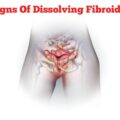Women play a critical role in maintaining the health of their families, however, when it comes to their own well-being, many suffer in silence while battling unique health concerns. Whether it’s recovery after having a baby, incontinence, or autoimmune issues, women deal with conditions that are difficult to discuss.
After enduring decades of being downplayed and pushed to the sidelines, women’s reproductive health has in recent years become the subject of louder public discussion. Periods are now openly celebrated in books and board games, hit TV shows, and an Oscar-winning short film. But fibroids haven’t yet had their big cultural moment, despite a growing chorus of personalities.
Where do women get health information to help make these decisions?
Advice may come from other women in similar situations or via “mommy groups.” And, of course, there’s the Internet. In fact, data from the Pew Internet Research Project found that women are more likely than men to go online to try to figure out a diagnosis. The good news on the internet today is that there is a resurgence in the use of complementary and alternative medicine worldwide, especially for the treatment of conditions that affect women.
What are fibroids?
According to UCLA health, fibroids are tumors made of smooth muscle cells and fibrous connective tissue. They develop in the uterus. It is estimated that 70 to 80 percent of women will develop fibroids in their lifetime. However, not everyone will develop symptoms or require treatment.
The most important characteristic of fibroids is that they’re almost always benign, or noncancerous. That said, some fibroids begin as cancer — but benign fibroids can’t become cancer. Cancerous fibroids are very rare. Because of this fact, it’s reasonable for women without symptoms to opt for observation rather than treatment.
Studies show that fibroids grow at different rates, even when a woman has more than one. They can range from the size of a pea to (occasionally) the size of a watermelon. Even if fibroids grow that large, we offer timely and effective treatment to provide relief.
Other key points about uterine fibroids:
- Uterine fibroids are the most common tumor of the reproductive tract.
- Women who are nearing menopause are at the greatest risk for fibroids.
- Fibroids are most often found during a routine pelvic exam.
- Symptoms may include heavy and prolonged periods, bleeding between periods, and pelvic pain.
A Healthy Diet When You Have Uterine Fibroids
If you are trying to manage your vitex for fibroids and maintain or shrink their current size, balancing your hormones naturally is a great first step. Your diet has a strong influence on your hormone levels, which is why it’s one of the first (and easiest) areas to apply changes.
For best results in managing your fibroids, try restricting the following food and drinks from your diet:
High-Fat, Processed Meats: Red processed meat is known to be high in added hormones, particularly estrogen.
High-fat Dairy Products: Conventional dairy can contain high levels of steroids, hormones, and other chemicals that promote inflation.
Foods High in Salt: Highly salted foods are hard on your liver, which is the organ that is most responsible for removing toxins and balancing hormones.
Refined Carbohydrates: White foods such as pasta, white bread, white rice, cakes, and cookies have been known to alter estrogen levels, causing fibroids to increase in size.
Refined Sugar: High consumption of sugar can result in inflammation and weight gain; there is an association between weight gain and hormone imbalance.
Caffeine: Too much caffeine puts additional stress on your liver, discouraging the organ from working the way it should (think: balancing hormones!)
Alcohol: Over-consumption of alcohol can lead to inflammation of the body and reduced immune function. Reducing or eliminating alcohol can help promote a healthy balance of hormones.
Top Natural Home Remedies For Fibroids In Nigeria
Natural remedies are substances of claimed medical value derived directly from plants or other natural sources. The view that natural remedies are in some way superior to those developed scientifically is mistaken.
Many useful drugs in the pharmacopeia are derived from natural sources but these have been purified and assayed so that accurate and safe dosage becomes possible. Most readily available and useful natural remedies have been exploited in this way and the search for other useful natural drugs for conditions like fibroids continues.
It is important to state that natural remedies are not cures but adjunct therapies that in most cases reduce the impact or symptoms of the condition. Natural remedies that can help with fibroid according to research include;
Green tea: contains several antioxidants. A study found that one of these, epigallocatechin gallate, may help slow the growth of fibroids by bringing down inflammation and high estrogen levels. Green tea may also improve symptoms of heavy bleeding due to fibroids, such as low iron.
Potassium: Food rich in potassium helps to counter the effects of salt to balance blood pressure. Add these potassium-rich foods to your daily diet. Potassium rich foods in Nigeria include;
- Bananas, oranges, cantaloupe, honeydew, apricots, and grapefruit (some dried fruits, such as prunes, raisins, and dates, are also high in potassium)
- Cooked spinach.
- Cooked broccoli.
- Potatoes.
- Sweet potatoes.
- Mushrooms.
- Peas.
- Cucumbers.
Fiber: Fiber-rich foods aid weight loss and balance hormones. They also help to keep blood sugar levels steady. For these reasons, fiber may help prevent and slow the growth of fibroids. Add these whole foods to your diet. Fibre rich foods include:
- Wholegrain breakfast cereals, wholegrain bread, oats, barley, and rye.
- Fruit such as berries, pears, melon, and oranges.
- Vegetables such as broccoli, carrots, and sweetcorn.
- Peas, beans, and pulses.
- Nuts and seeds.
- Potatoes with skin.
Vitamin D: may help reduce your risk of fibroids by almost 32 percent. Your body makes this “sunshine vitamin” naturally when your skin’s exposed to sunlight. If you have darker skin or live in cooler climates, you’re more likely to be deficient. Foods that provide vitamin D include:
- Fatty fish, like tuna, mackerel, and salmon.
- Foods fortified with vitamin D, like some dairy products, orange juice, soy milk, and cereals.
- Beef liver.
- Cheese.
- Egg yolks.
Milk: Adding dairy products such as yogurt and full-fat cheese to your diet. Dairy is rich in calcium, phosphorus, and magnesium. These minerals may help prevent fibroids and slow their growth. Fortified milk also contains vitamin D. ALSO READ: Remedies For Irregular Menstrual Periods In Nigeria
Reminder: Natural Does not Mean Safe
Many people think that using plants to treat illness is safer than taking medicine. People have been using plants in folk medicine for centuries. So it is easy to see the appeal. Yet “natural” does not mean safe. Unless taken as directed, some herbals can interact with other medicines or be toxic at high doses. Also, some may cause side effects. ALSO READ: Can STC30 Cure Fibroids and Infertility?






